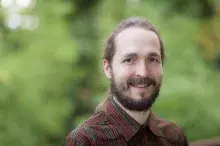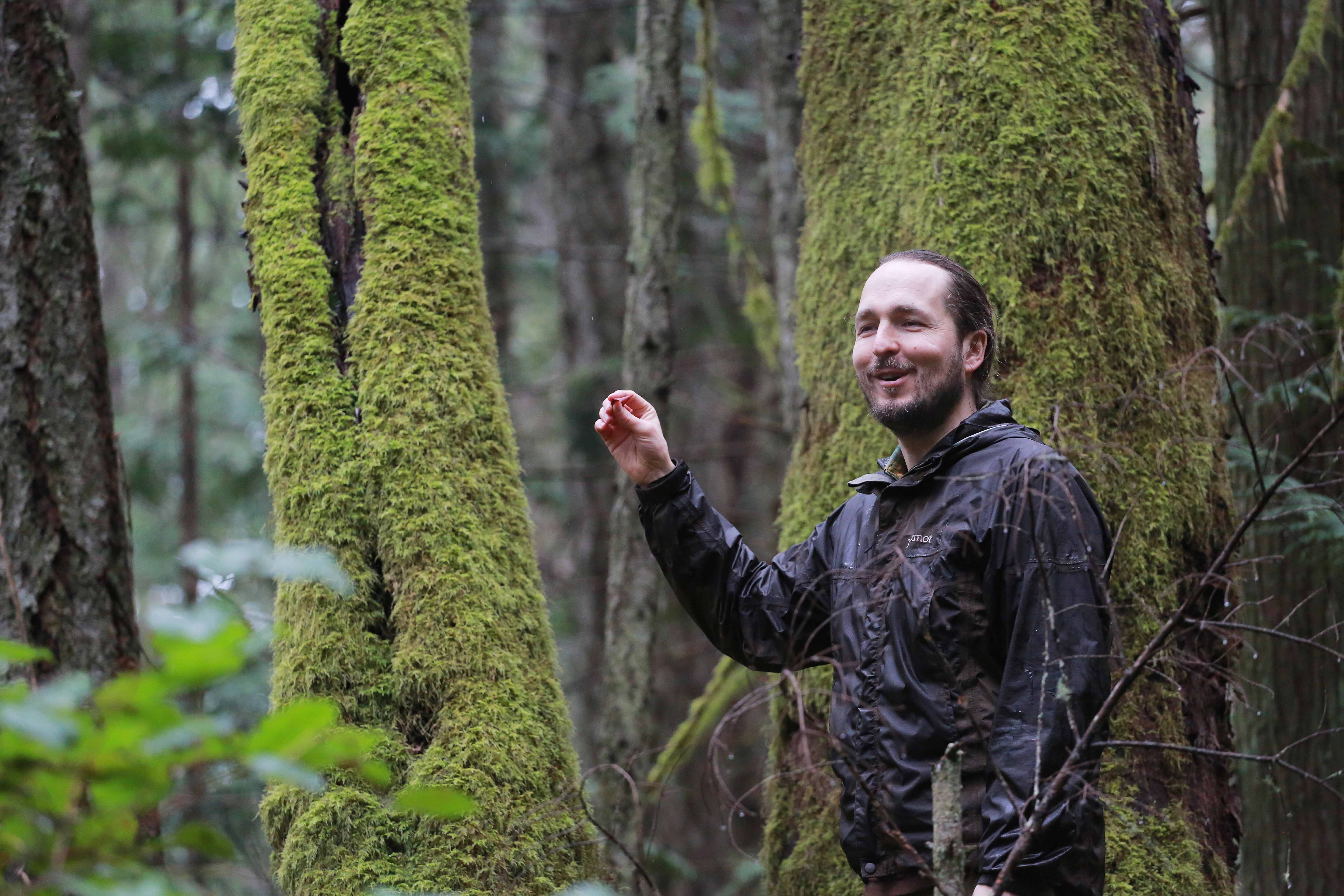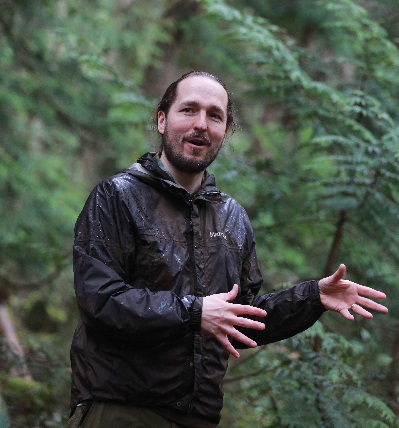
Dr. Lee Beavington, an interdisciplinary instructor and learning strategist with Kwantlen Polytechnic University’s (KPU) Faculty of Academic and Career Preparation, received the Distinguished Teaching Award during the Feb. 27 convocation ceremony.
Dr. Beavington has taught at KPU since 2002, and has worked in five faculties, where he has been innovating curricula, leading field schools, and getting involved with countless student and faculty initiatives over the past two decades.
“Dr. Beavington is one of our most outspoken, communicative, and active faculty members,” says Dr. Brett Favaro, Dean of the Faculty of Science at KPU. “He has a constant presence at community events, on social media, and in all sorts of forums where learning is taking place in the field and in our community. He turns the world into his classroom, and has truly integrated teaching into his personal values and his way of life. For these reasons and more, Dr. Beavington wholly deserves this award.”
A hit with both his students and faculty colleagues, Dr. Beavington describes his teaching philosophy as holistic.
“The biggest lesson I’ve learnt over two decades of teaching is relationship-building is priority one,” explains Dr. Beavington. “When we take a holistic approach to our learners and see them as fully-bodied — with hearts, and dreams, and work, and emotions — it shifts how we engage with them.”
A proponent of place-based education, Dr. Beavington has been involved in creating and delivering numerous field school and outdoor initiatives at KPU, such as the Amazon Field School, along with other place-based education programs such as KPU Wild Spaces. Additionally, his passion for pedagogical improvement has fueled his work in curriculum development and interdisciplinary studies.

Dr. Beavington credits the mentors and guides he’s had along the way for his success as an educator.
“Some of the most impactful include Ross Laird, Farhad Dastur, Roger Abrahamsen, and Alice Macpherson,” says Dr. Beavington. “Each has shown me, in their own way, what education can look like when we do something less conventional, more authentically connected to each learner’s uniqueness, and with great enthusiasm.”
True to form, he doesn’t get all his mentorship on campus.
“In the years when I was shifting from being a more prescriptive, ‘sage on the stage’ type educator to a relational facilitator, or ‘guide on the side,’ my wife, Jenn, was my greatest teacher.”

According to Dr. Beavington, some of the most rewarding highlights have come from seeing how students build community, not just their academic accomplishments.
“I was teaching an introductory biology course and class had ended, a couple students were going for lunch and they invited everyone else to come,” he recalls. “That trust and connectedness is what I’m most proud of. Because guess what? If students are in an environment of co-created trust, and feel respected for who they are, and connected to others in the classroom, then they are more likely to succeed in their studies.”
While Dr. Beavington has no shortage of academic achievements to be proud of, including over 30 refereed publications, numerous creative publications, and over a hundred presentations including a TEDx Talk, he says it’s always the next project that is the most exciting. At the moment, that is a book of poetry on nature and nature education.
However, that’s not all Dr. Beavington is working on.
“KPU Wild Spaces, our group focused on ecological place-based education, has a lot of interest right now,” says Dr. Beavington. “We have a KPU Farm visit planned, a Cougar Creek cleanup party, a biodiversity and climate action event, and a new Community of Practice forming around nature-based communication.”
Dr. Beavington is also working with KPU Fine Arts instructor Liz Toohey-Wise, to develop a local river field school. He is also developing content for the Teaching and Learning Commons on the topic of inquiry-based learning and has a time release for decolonizing the KPU Learning Centres.
“Decolonization and Indigenization are the most important work we can do as educators right now,” Dr. Beavington explains. “Partly because Indigenous ways of learning embrace meaningful pedagogical practices, such as exploring who we are and our roles in the world, considering the consequences of one’s actions, and embracing experiential and reflective approaches. But more so because if we want to see systemic change at the university and beyond, including tackling the climate crisis, Indigenous voices hold many of the solutions. We need to listen and act.”
To learn more about Dr. Beavington and his infinitives at KPU visit his website, KPU Wild Spaces and Climate+ Challenge.